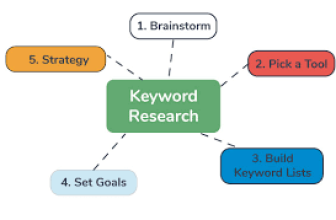
Introduction
Remote work interviews have become the norm, reshaping how companies and candidates connect. While these virtual meetings are convenient, they also come with unique challenges. It’s crucial to approach these interviews with a critical eye, as identifying potential red flags early can save you from future headaches. Let’s dive into the most common warning signs to watch for during work-from-home (WFH) interviews and how to handle them effectively.
General Warning Signs in Remote Interviews
Poor Communication or Lack of Clarity
An interview is a two-way street. If the interviewer fails to clearly communicate the role’s expectations, job requirements, or next steps in the hiring process, it’s a significant red flag. This lack of clarity often reflects internal disorganization, which could impact your experience as an employee.
Questions to ask:
- Can you walk me through a typical day in this role?
- What are the company’s expectations for communication during remote work?
Unstructured Interview Processes
If the interview feels disorganized, with last-minute scheduling or unclear formats, this could signal a chaotic work environment. A company that values its candidates will ensure the process is professional and well-structured.
Overemphasis on Availability and Hours
Beware of interviewers who overly stress your availability instead of focusing on your skills or contributions. This could hint at an unhealthy obsession with micromanagement or an expectation of being on-call 24/7.
Company-Specific Red Flags
Absence of Clear Role Expectations
If interviewers struggle to define your role or responsibilities, it’s a major warning sign. A lack of clarity about your job’s scope could mean confusion or frequent changes in priorities.
Inconsistent Messaging from Interviewers
When multiple interviewers provide conflicting information, it suggests poor communication within the company. It’s essential to clarify such discrepancies to avoid entering a chaotic environment.
Lack of Insight Into Company Culture
A company’s culture heavily influences your job satisfaction. If interviewers avoid or downplay discussions about values, team dynamics, or remote work policies, take this as a red flag.
Indicators of a Toxic Culture
Dismissive Attitudes Toward Work-Life Balance
Remote work often blurs the boundaries between personal and professional life. Companies that expect constant availability or dismiss your need for work-life balance might not respect employee well-being.
Micro-Management Tendencies Revealed During Discussions
Watch for hints that the company lacks trust in its remote employees. Phrases like “we constantly monitor productivity” or requiring excessive check-ins can indicate a micromanaged culture.
Job Offer Scams in WFH Roles
Requests for Upfront Payments or Fees
Legitimate employers will never ask candidates to pay for training, equipment, or onboarding fees. If they do, it’s likely a scam targeting vulnerable job seekers.
Offers That Bypass Standard Interview Procedures
Receiving an immediate job offer without a formal interview is a major red flag. Genuine companies want to assess candidates thoroughly before making decisions.
Lack of Verifiable Company Information
If the company’s website is sparse, their LinkedIn profile is inactive, or online reviews are non-existent, proceed with caution.
How to Verify a Legitimate Job Offer
- Research the Company: Look for detailed information on their official website and verify its credibility.
- Check Employee Testimonials: Platforms like Glassdoor or Indeed can provide insights into the company’s work environment.
- Contact Current Employees: Reach out to current staff on LinkedIn to gather first-hand experiences.
Technical and Equipment Red Flags
Ambiguity About Tools and Software Required
If the company cannot specify the tools or platforms used for remote work, it may indicate a lack of preparation for remote operations.
Unwillingness to Cover Necessary Expenses
Many legitimate remote jobs provide stipends or reimbursements for equipment like laptops or internet. A refusal to discuss this could suggest cost-cutting at the employee’s expense.
Poor Understanding of Technical Requirements
Employers that expect employees to handle technical issues without offering support or training might not prioritize your success.
Interviewer Behavior
Interrupting or Dismissive Attitudes
Interviewers who frequently interrupt or disregard your questions are likely unprofessional or uninterested in fostering mutual respect.
Overemphasis on Personal Life Instead of Professional Qualifications
If the discussion skews heavily toward your personal circumstances rather than your skills, it could reflect bias or inappropriate curiosity.
Unprofessional Conduct or Language
Sloppy communication, inappropriate jokes, or rude comments from interviewers are serious warning signs of a toxic workplace.
Unclear Career Growth Opportunities
Vague Answers About Promotions or Raises
A company that cannot articulate how they reward performance or promote employees might not offer a long-term career path.
Overly Focused on “Doing More With Less”
Beware of employers who boast about frugality at the expense of employee resources. This could translate into overwork and under-compensation.
Unrealistic Expectations or Promises
“Unlimited” Earning Potential With Little Detail
Be cautious if an employer dangles vague promises of high earnings without specifying a clear path to achieve them.
Lack of Transparency About Workload and KPIs
If the company is unwilling to discuss workload, deadlines, or performance metrics, it’s difficult to gauge whether the job aligns with your capabilities and expectations.
Conclusion
Remote job interviews require candidates to be vigilant and discerning. Spotting red flags early can save you from stepping into a challenging or even exploitative work environment. By asking the right questions and conducting thorough research, you can empower yourself to make informed decisions.
FAQs
What should I do if I notice a red flag during a remote interview?
Politely address your concerns during the interview or follow up with additional questions via email to clarify.Are upfront fees for WFH jobs ever justified?
No, legitimate employers do not charge fees for hiring or onboarding.How can I research a company’s legitimacy for a remote role?
Review their official website, search for employee testimonials, and check LinkedIn for employee profiles.Why is it essential to ask about company culture during remote interviews?
Understanding the culture ensures the environment aligns with your values and expectations.What are some tools to help detect fraudulent job offers?
Tools like Glassdoor, LinkedIn, and scam-alert websites can help verify the legitimacy of job postings.








